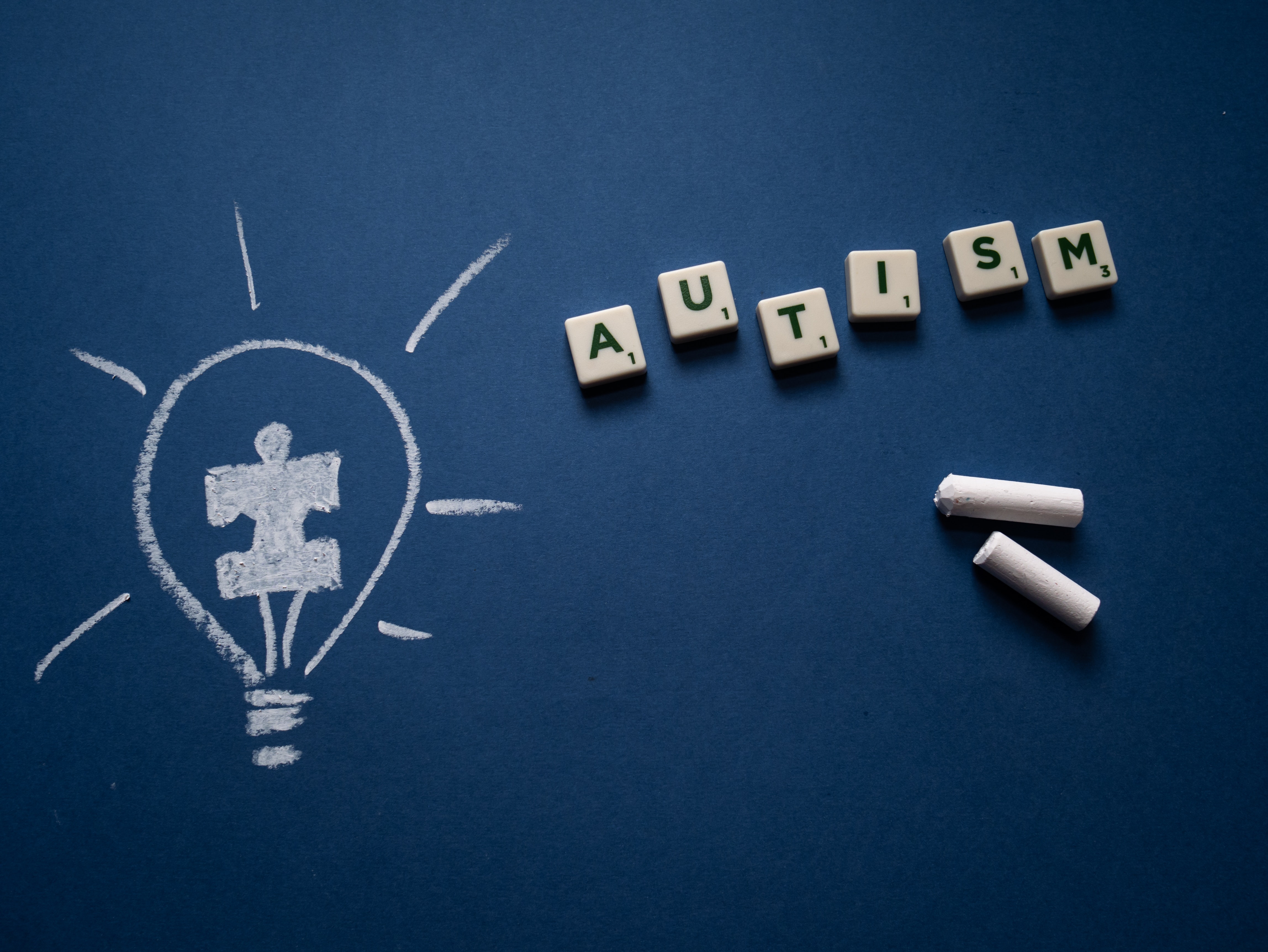Newsletter
Subscribe to stay updated on our latest news, upcoming workshops, training and special offers

Autism is a neurodevelopmental disorder that affects communication, social interaction, and behavior. According to the World Health Organization, an estimated 1 in 100 children worldwide has autism, with a higher prevalence in males than females. Despite the global prevalence of autism, there are many myths and misconceptions about the condition that continue to persist.
These misconceptions may cause stigma, discrimination, and the promotion of risky or ineffective treatments, which can be detrimental to people with autism and their families. Therefore, it is essential to dispel these misconceptions and inform the public of the reality regarding autism. By dispelling widespread misconceptions about autism, we can advance a more accurate and encouraging knowledge of the condition and, in turn, support people with autism in leading happy and meaningful lives.
Debunking Common Myths About Autism
Myth #1: Autism is caused by bad parenting
One of the most pervasive and harmful myths about autism is the belief that it is caused by bad parenting. This myth originated in the 1940s when psychiatrists and child development specialists blamed autism on the supposedly cold and aloof parenting styles of mothers. This theory, known as the "refrigerator mother" theory, has been thoroughly discredited by scientific research. Multiple studies have shown that parenting style does not cause autism, and that autism has a strong genetic component. In fact, identical twins are much more likely to both have autism than fraternal twins or siblings, which supports the idea that genes play a major role in the development of autism.

Families with autistic children can suffer a great deal as a result of the "bad parenting" fallacy. Parents may feel guilty or stigmatized by society for their child's illness. Additionally, this myth hinders advancements in the knowledge and treatment of autism by drawing focus away from its true causes. It is essential to realize that poor parenting is not the cause of autism and to instead concentrate on the numerous other factors, including genetic mutations, exposure to toxins during pregnancy, and other external factors.
Myth #2: Autism can be cured or fixed:
Another widespread misconception about autism is the idea that it can be treated or fixed with different therapies and interventions. Unfortunately, there is no universally effective therapy for autism and there is no known cure. While therapies and interventions can help people with autism handle their symptoms and enhance their quality of life, they cannot treat or cure the condition itself. Autism is a lifelong condition that affects people in various ways.
Promoting the idea that autism can be cured or fixed can be harmful to individuals with autism and their families, as it can create false hope and lead to the pursuit of ineffective or even dangerous treatments. Some treatments that claim to cure or fix autism, such as bleach-based therapies or chelation therapy, can be harmful and have no scientific basis. It is crucial to recognize that while autism can present challenges, individuals with autism have many strengths and talents, and they deserve acceptance and support rather than being treated as if they need to be cured or fixed.
Myth #3: People with autism lack empathy and emotion:
Another common myth about autism is that people with autism lack empathy and emotion. This myth is based on the idea that because individuals with autism may have difficulty with social interactions and communication, they must also lack the ability to understand or care about other people's emotions. However, research has shown that individuals with autism can experience empathy and emotion, but they may express it in different ways. For example, individuals with autism may have difficulty with nonverbal communication or interpreting facial expressions, but they may still feel emotions just as deeply as neurotypical individuals.

Promoting the notion that those with autism are incapable of feeling empathy or sentiment can be detrimental because it can result in misconceptions and stereotypes about those with autism. It's critical to understand that people with autism experience a broad range of emotions just like everyone else. We can foster more empathy and understanding for people with autism and build a more accepting and encouraging community by comprehending and accepting these variations in emotional expression.
Myth #4: All people with autism have savant abilities:
One stereotype that is frequently perpetuated in the media and in popular culture is the idea that all individuals with autism are savants who possess exceptional mathematical or creative abilities. While it's true that some people with autism have extraordinary talents in some areas, like music or memorization, not all people with autism have savant abilities. In actuality, savant abilities are not a defining trait of autism; rather, they are possessed by a tiny minority of people with the disorder.
Promoting the idea that all people with autism have savant abilities can be harmful, as it creates unrealistic expectations and reinforces stereotypes about individuals with autism. Additionally, it can overshadow the many other strengths and talents that individuals with autism possess. It is important to recognize and celebrate the unique strengths and abilities of each individual with autism, rather than assuming that they all possess the same skills or traits. By doing so, we can promote greater acceptance and understanding of individuals with autism, and create a more inclusive and diverse society.
Myth #5: Autism only affects boys:
Another common myth about autism is that it only affects boys. While it is true that boys are diagnosed with autism more often than girls, this does not mean that autism only affects boys. The gender ratio of autism is estimated to be around 4:1, meaning that for every four boys diagnosed with autism, one girl is diagnosed. However, recent research suggests that the actual gender ratio may be even closer to 2:1, as many girls with autism may be underdiagnosed or misdiagnosed due to differences in how autism presents in girls versus boys.

It can be detrimental to spread the myth that autism only affects males because it may cause girls with autism to go unnoticed or receive an incorrect diagnosis. Girls with autism may exhibit symptoms that are distinct from those in boys, such as social withdrawal or anxiety, and these symptoms may be mistaken for those of other illnesses. It's crucial to make sure that boys and girls with autism are supported and understood on an equal basis, and that no one overlooks or dismisses them because of negative gender norms.
Final Thoughts
In conclusion, debunking common myths about autism is essential to promote greater understanding and acceptance of individuals with autism. Myths such as the idea that autism is caused by bad parenting or that it can be cured or fixed, can be harmful and create false expectations for individuals with autism and their families. By promoting accurate information about autism, we can help to create a more inclusive and supportive society that values the unique strengths and talents of all individuals, regardless of their neurodiversity.
It is important to recognize that each individual with autism is unique, and there is no one-size-fits-all approach to understanding or supporting individuals with autism. By rejecting harmful myths and stereotypes, and recognizing the diverse experiences and perspectives of individuals with autism, we can create a society that is more inclusive, accepting, and respectful of all individuals, regardless of their neurodiversity. Together, we can work towards a more equitable and compassionate world for all.
Note:
Hopscotch Child Therapy is a child and family guidance centre with a mission to improve the standard and accessibility of early intervention and mental healthcare services for children and families. We constantly strive to provide high-quality, effective, evidence-based mental health and therapeutic services. To assist your kid in realizing his or her full potential, we have a team of highly qualified therapists with years of expertise. Visit your website right away to make an appointment!
April 3, 2023

August 24, 2022

September 30, 2020
.jpg)
August 9, 2022